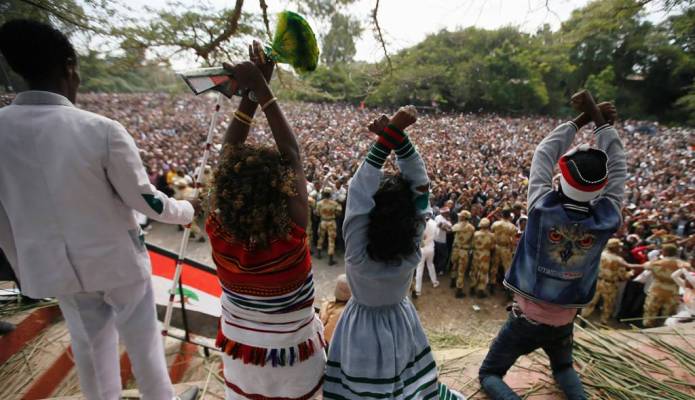Ethiopia lifts state decree imposed to contain unrest

By Tesfa-Alem Tekle
August 4, 2017 (ADDIS ABABA) – The Ethiopian parliament on Friday lifted the state of emergency enacted last year, following violent anti-government protests in many parts of the country
The state emergency, the country’s first in quarter a century, was imposed in October after hundreds of people were killed during protests mainly in Oromiya and Amhara regions.
In March, the Ethiopian parliament unanimously endorsed proposed motion to extend the nationwide State of Emergency for additional four months arguing the existence of a potential threat of unrest in parts of the country.
Today, the parliament, voted to end the state emergency shortly after Defense Minister, Siraj Fegessa, who also is head of the command post set up to oversee the state of emergency presented a 10-month performance report to lawmakers.
In his report, Siraj said that the country’s peace and security situation has been restored in collaboration with the public.
He, however, admitted the presence of few remaining security threats which the government is currently dealing with.
Over 26,000 people were arrested since Ethiopia declared the emergency law but most have been released.
The minister said more than 8,000 people still remain behind bars accused of crimes committed during the violence.
Since 2015 the horn of Africa’s nation had faced an unprecedented wave of protests in Oromia and Amhara regions demanding territory, political and economic rights.
Restrictions under the state of emergency included lifted the command post’s power to arrest people or search individuals’ houses without court orders, curfews and other restrictions on media and social media activism.
It also prohibitions unauthorised movements around infrastructure facilities and factories.
(ST)
